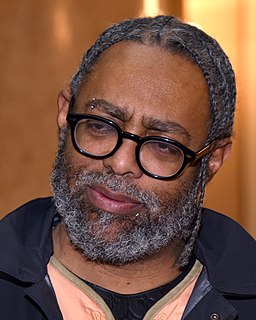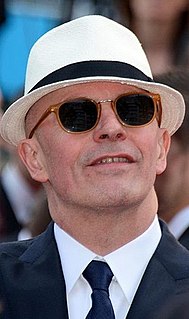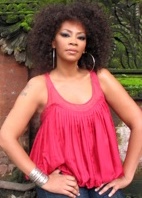A Quote by Arthur Jafa
I have a very simple mantra and it's this: I want to make black cinema with the power, beauty, and alienation of black music. That's my big goal. The larger preoccupation is how do we force cinema to respond to the existential, political, and spiritual dimensions of who we are as a people.
Related Quotes
Remember, I'm the guy who didn't want the referendum - I wouldn't have had it if I'd been prime minister. But you have to respect how people voted because this was partly about political alienation, so if the response to political alienation is to ignore it, that's a recipe for more political alienation.
For people to understand, you can't speak 'cinema.' Cinema doesn't have alphabets, so you have to go to the local language. Even in England, if they make a movie in London they have to make it in the Cockney accent, they can't make a film with the English spoken in the BBC. So cinema has to be realistic to the area that it is set in.
The beauty of the literary art, the grappling with the black church, the wrestling with one's identity in the bosom of a complicated black community that was both bulwark to the larger white society as well as a threshing ground, so to speak, to hash out the differences that black people have among ourselves.
MORE CONSISTENTLY THAN EVER I WAS TRYING TO MAKE PEOPLE BELIEVE THAT CINEMA AS AN INSTRUMENT OF ART HAS ITS OWN POSSIBILITIES WHICH ARE EQUAL TO THOSE OF PROSE. I WANTED TO DEMONSTRATE HOW CINEMA IS ABLE TO OBSERVE LIFE, WITHOUT INTERFERING, CRUDELY OR OBVIOUSLY, WITH ITS CONTINUITY. FOR THAT IS WHERE I SEE THE POETIC ESSENCE OF CINEMA.
Some people feel that the purpose of cinema is entertainment - which in itself is a healthy enough goal, provided you define what constitutes entertainment. But I come from a family where I grew up believing that cinema - art - should be used as an instrument for change and that's the kind of cinema I've largely done and been attracted to.































